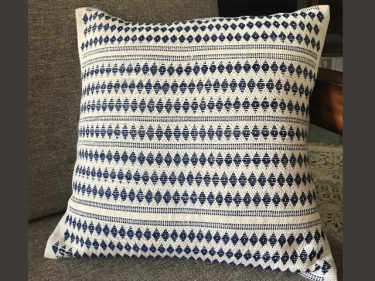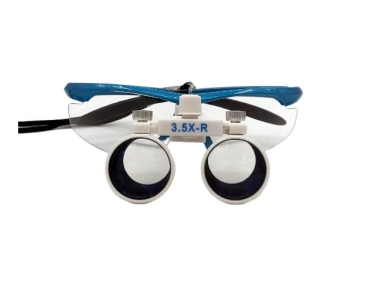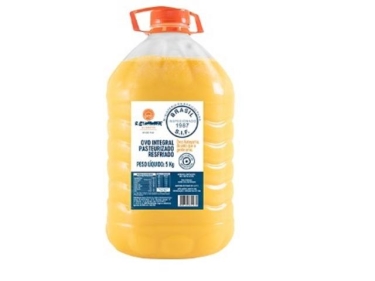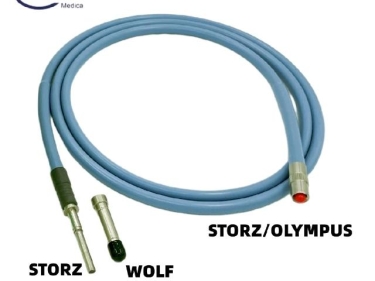Blockchain in Manufacturing: Enhancing Trust and Cutting Costs
Blockchain is a trustless, peer-to-peer, distributed ledger. By using a blockchain, you will improve your manufacturing process and cut costs on a case by case basis.

Blockchain could become the megatrend of this century, similar to the internet in the early 1990s. It aims to decentralize currently centralized systems, resulting in faster, cheaper, and more secure transactions.
What is blockchain technology?
Blockchain is a database technology that stores information. Contrary to traditional databases, blockchain does not store data in a centralized data server but distributes it across an extensive network of computers.
As records are available to every user in the network – instead of only one entity – it's nearly impossible to manipulate or falsify data. This form of record-keeping makes blockchain a more transparent and secure way of recording transactions, which is why it could become a prime technology for the manufacturing industry.
The pace of innovation has been hectic in the past few years with the surge of new disruptive technologies. Among all these new solutions, blockchain is the most promising one available today. A distributed ledger provides an immutable, reliable, and shared view of transactions – such as monetary transactions, property records, or other valued assets – between engaging parties in an untrusted environment.
Its unique characteristics enable institutions to operate much quicker and cheaper, with a far lower error rate, fewer resulting risks, lower capital requirements, and less vulnerability to cyber-attacks.
Financial services are the sector most likely to be disrupted by this technology, with a shared consensus that blockchain represents a tangible innovation over many of the systems and processes used today. Blockchain may have a long-term influence on the global economic system, reshaping market structure, customer experience, and product features. According to the PwC 2016 FinTech report, blockchain-related interest and investment have reached critical mass, and the technology has shown itself capable of driving significant change.

Track-and-trace systems reduce product recall costs.
Think of product recalls. Alone in the food processing industry, product recalls resulted in damages of almost $3.5 billion last year, according to the consulting firm Capgemini.
Every time that happens, a manufacturer must identify the faulty product and trace it throughout the entire supply chain, maybe even back to the source of its raw materials, to determine the supply chain bottleneck that has caused the production error.
Blockchain's distributed ledger structure allows manufacturers to set up real-time audit trails for every manufacturing process step. This way, a manufacturer can easily trace a product back to the source of each component quickly and at a relatively low cost.
Blockchain technology is poised to disrupt manufacturing over the next few years by fundamentally redesigning inefficient processes in areas such as supply chain management and trade finance and spawning entirely new business models. Although the technology is still in its early stages of development, manufacturers must assess how they will harness blockchain networks to generate business value and prepare for the new competitive realities that the technology will bring.
Financial institutions and other stakeholders on joint projects test how blockchain's distributed ledger technology, in combination with smart contracts, can be deployed to streamline and automate business operations. Fully exploiting its potential will require manufacturers to collaborate more effectively with supply chain partners. Manufacturers that move quickly will also be able to capture first-mover advantages in transitioning to the new competitive landscape created by blockchain innovations. This is particularly true for capabilities powered by 3D printing and intelligent devices to create unique and more trusted ways of interacting and transacting across manufacturing's distinct disciplines - from product design and R&D through manufacturing, logistics, and fulfillment.
Supply chain transparency increases consumer confidence.
On a blockchain, any data entry or ledger change needs to be approved by every party within the chain. This process might seem cumbersome, but it makes the database more secure as it becomes nearly impossible to manipulate stored information.
At every step of the production process, the involved entity can upload data onto the blockchain. For example, an Indonesian fish farmer can confirm the time and location of his latest tuna catch and upload it onto a blockchain. The shipping company can ensure it has shipped the tuna to the manufacturer, who then confirms it has been processed and sent to a retailer. The final consumer can scan a QR code on a tuna can with a smartphone app and view all steps of the supply chain, confirming his tuna comes from Indonesia.
As none of the blockchain-stored data can be altered, both the manufacturer and the consumer have greater confidence in the quality of the product.
According to Capgemini, 13% of the manufacturing sector already implements blockchain pilots in selected sites or even at scale. Many others are in a proof of concept stage. Thus, it's only a matter before blockchain-based processes become the norm for manufacturing companies.
The benefits of blockchain implementation
The following are among the promising uses cases for blockchain in manufacturing, proving that its implementation in manufacturing means not just cutting costs but much more than that:
Real-time procurement: smart contracts on a blockchain could continuously query all other nodes for the best pricing, delivery times, and other terms and conditions for specialized parts. This would allow significant manufacturers to ramp up more efficiently to meet demand while helping component manufacturers meet customer demand.
Supply chain visibility and traceability: a blockchain supply chain application could provide real-time visibility into each stage of the production and delivery of products and parts. When problems occur with raw materials or components, manufacturers could reduce their liability by quickly identifying the individual products and customers affected.
Blockchain promises to dramatically streamline these and other operational areas through its ability to allow disparate organizations to share information securely without the need for a trusted intermediary. Blockchain's ability to support smart contracts, which negotiate and execute agreements automatically, could eliminate many of the manual processes that currently slow processing, increase costs and often lead to ambiguities and disputes. Manufacturers could also improve planning by gaining real-time visibility into their supply chain.
Manufacturers can boost operational efficiency, reduce production costs, and create new business opportunities using blockchain. The value chains that support global manufacturing depend on achieving trust among a complex web of suppliers, distribution partners, and customers. Suppliers must be selected carefully and then monitored for quality and reliability.
Manufacturers must confirm that distribution partners have delivered finished products on time. To meet regulatory requirements, manufacturers also engage with service providers who conduct inspections and issue certifications to ensure best practices are followed.
Export Portal has also implemented a blockchain-based system on its trade portal. Like in manufacturing, EP and its users also benefit from blockchain's security and transparency features, as platform users can exchange information in real-time without any security concerns. That's what makes the technology so effective across almost every industry.
Stay Tuned with Export Portal
For information on how B2B export works, be sure to check out our Blog Page today!


















Comments 1